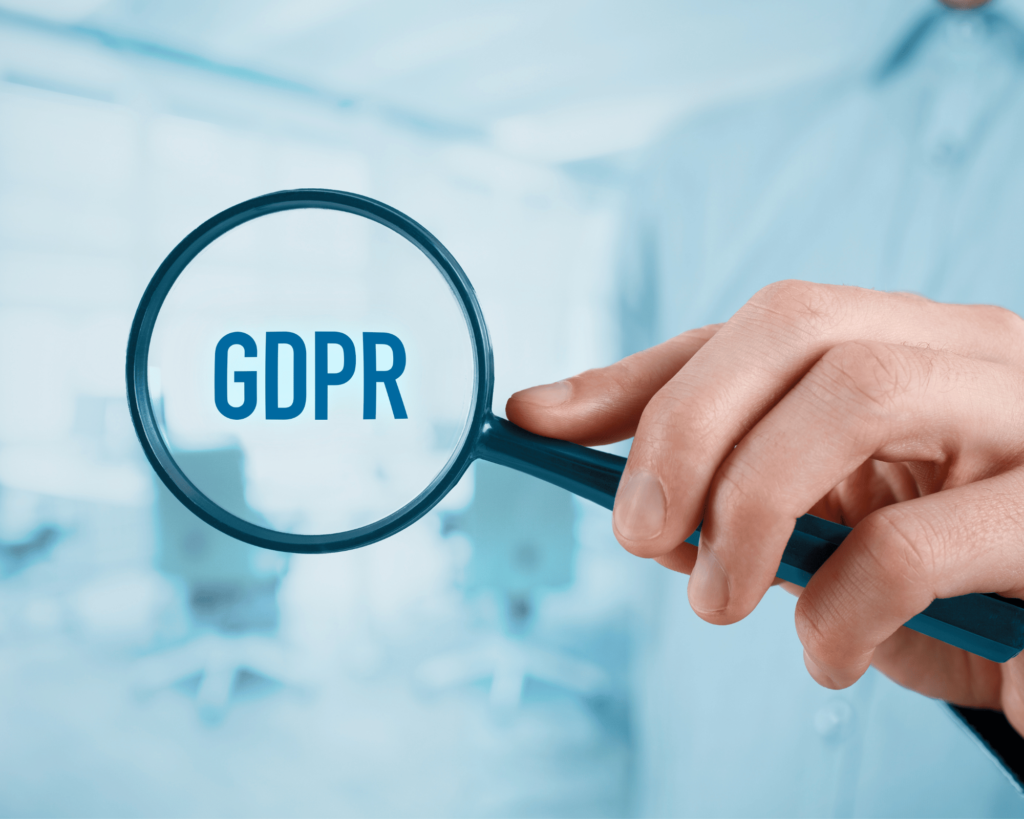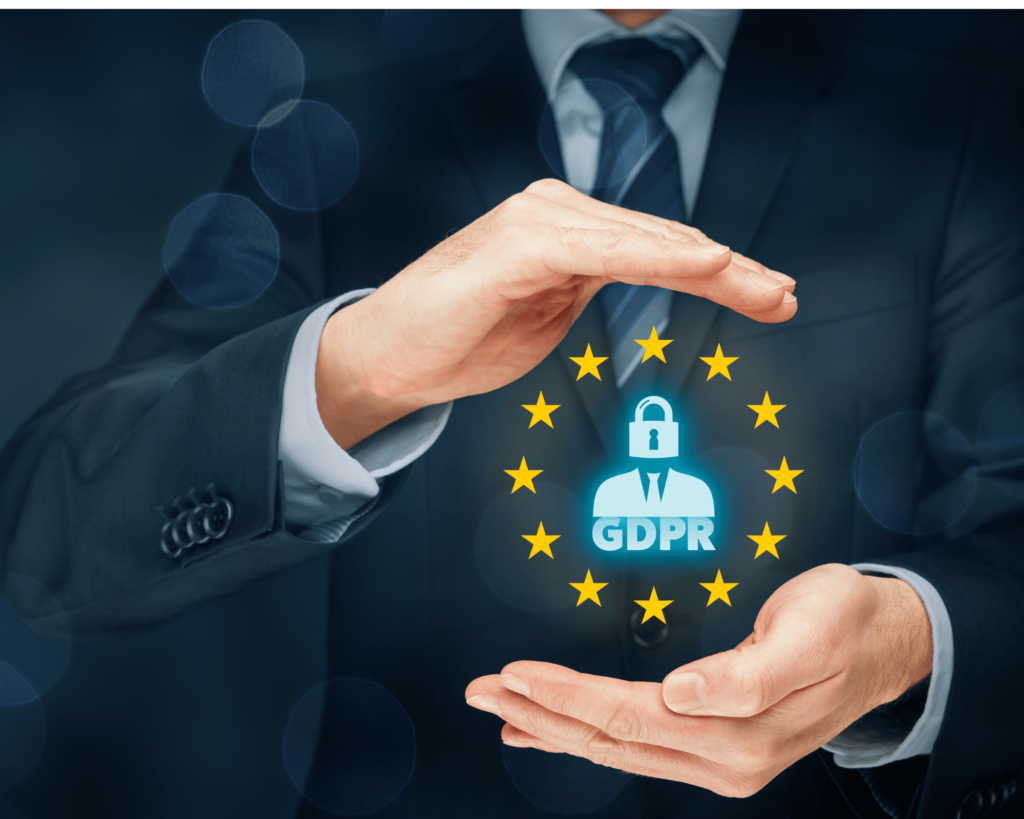Personal information has become an increasingly valuable commodity in the digital era. Every day, we exchange our personal information with various organisations via online shopping, social media, smartphone applications, and online banking. Yet, as the frequency of data breaches and cyberattacks rises, it is more crucial than ever to ensure that our personal information is secure. The Global Data Protection Regulation (GDPR) comes into play here.
This article will examine GDPR and its fundamental concepts in further detail. We will investigate what GDPR is, where it originated, and why it is so important. We will also investigate GDPR’s effects on both corporations and individuals.
What exactly is GDPR?
GDPR refers to the General Data Protection Regulation. It is a law created by the European Union (EU) to protect its people’ personal data. The General Data Protection Regulation (GDPR) was implemented on May 25, 2018, and applies to all companies within the EU, as well as those that provide products or services to the EU or monitor EU residents.
GDPR intends to improve and standardise data protection legislation throughout the EU. It supersedes the 1995 Data Protection Directive, which governed data protection in the EU previously. GDPR is intended to offer individuals more control over their personal data and make it simpler for organisations to comply with data protection rules.
Where Did GDPR Originate?
The need to modernise data protection regulations for the digital age gave rise to GDPR. The previous law, the Data Protection Directive of 1995, was enacted before the internet and contemporary technology became prevalent. Thus, it was no longer suitable for use in the twenty-first century.
The obsolete Directive was replaced with a new data protection rule proposed by the European Commission in 2012. GDPR was finally passed in April 2016 after four years of talks, and it went into force on May 25, 2018.
Why Is GDPR Necessary?
In a period of growing digitalization, GDPR is necessary to safeguard the protection of personal data. Personal data has become a valuable commodity due to the advent of social media, e-commerce, and the internet of things. Businesses utilise it to enhance their products and services, while cybercriminals use it to commit fraud and identity theft.
The General Data Protection Regulation is intended to provide individuals greater control over their personal data. It offers organisations with a set of rules to follow while processing personal data. This encompasses data collection, storage, usage, and deletion. Individuals are also granted a variety of rights under GDPR, including the right to view their personal data, the right to have their data erased, and the right to object to the processing of their data.

Key Principles of GDPR
The GDPR is based on a set of eight core principles, which must be followed by all organizations and entities serving the citizens of the EU. These principles are as follows:
- Notification – Individuals must be informed about how their data is being used and who it’s being shared with.
- Lawfulness – Processing of personal data must be done in a lawful, fair, and transparent manner.
- Limits – Data should only be collected and used for specific and legitimate purposes.
- Security – Appropriate measures must be taken to ensure the security of personal data.
- Accountability – Organizations are responsible for complying with GDPR and must be able to demonstrate their compliance.
- Downstream protection – Data controllers must ensure that all data processors and third-party service providers also comply with GDPR.
- Access and Rights – Individuals have the right to access their personal data and to request that it be corrected or deleted.
- Breach Notification – Organizations must notify individuals and data protection authorities in the event of a data breach.
What Constitutes Processing Under GDPR?
Under GDPR, processing refers to any operation or set of operations that are performed on personal data. This can include:
- Collecting data
- Documenting data
- Storing or classifying data
- Adjusting data
- Utilizing data
- Disclosing data
- Restricting data
- Deleting data
It’s worth noting that GDPR applies to both automated processing, such as using an algorithm to make decisions based on personal data, and manual processing, such as storing personal data in a paper file.
What are the Consequences of Non-Compliance with the GDPR?
The consequences of non-compliance with GDPR can be severe. Organizations that fail to comply with the GDPR can be fined up to 4% of their annual global turnover or €20 million, whichever is greater. In addition to the financial penalty, organizations that fail to comply with GDPR can suffer significant reputational damage.
How Does the GDPR Affect Businesses?
GDPR affects businesses in a number of ways. Firstly, it places new obligations on businesses that process personal data. These obligations include:
- Conducting data protection impact assessments (DPIAs) before processing personal data
- Appointing a data protection officer (DPO) in certain circumstances
- Notifying individuals and data protection authorities in the event of a data breach
- Providing individuals with access to their personal data
- Obtaining explicit consent from individuals before processing their data
In addition to these new obligations, GDPR also gives individuals a number of new rights. These rights include:
- The right to access their personal data
- The right to have their personal data corrected or deleted
- The right to object to the processing of their personal data
- The right to data portability
Businesses must be able to comply with these new obligations and rights, and failure to do so can result in significant fines and reputational damage.
How Does GDPR Affect Individuals?
GDPR gives individuals greater control over their personal data. Individuals now have the right to access their personal data, to have it corrected or deleted, and to object to the processing of their data. GDPR also requires organizations to obtain explicit consent from individuals before processing their data.
Overall, GDPR provides individuals with greater transparency and control over their personal data. It aims to give individuals greater trust in the companies that handle their data and to reduce the risk of data breaches and cyber attacks.
The Takeaway
TGDPR is a comprehensive data protection law that has been designed to give individuals greater control over their personal data. It replaces the outdated 1995 Data Protection Directive and applies to all organizations within the EU, as well as those supplying goods or services to the EU or monitoring EU citizens. GDPR is based on a set of eight core principles, and failure to comply with the GDPR can result in significant fines and reputational damage. Businesses and individuals must ensure that they are complying with GDPR to protect personal data and reduce the risk of data breaches and cyber attacks.

